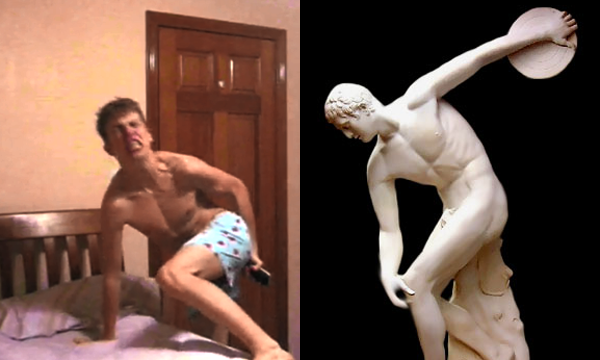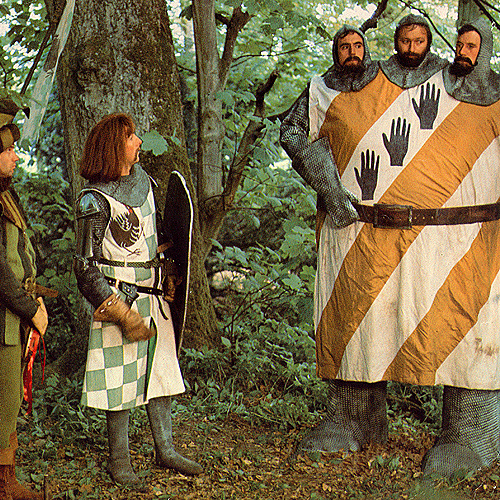What is Experimental Literature? {Five Questions: Michael Martone} ***NOTE: final entry in the series***

Michael Martone‘s most recent books are Not Normal, Illinois: Peculiar Fiction from the Flyover, Racing in Place: Collages, Fragments, Postcards, Ruins, a collection of essays, and Double-wide, his collected early stories. Michael Martone, a memoir in contributor’s notes, Unconventions, Writing on Writing, and Rules of Thumb, edited with Susan Neville, were all published recently. He is also the author of The Blue Guide to Indiana, published by FC2. The University of Georgia Press published his book of essays, The Flatness and Other Landscapes, winner of the AWP Award for Nonfiction, in 2000.
Carmen Gimenez Smith’s book BRING DOWN LITTLE BIRDS has just won an American Book Award. Huge huge huge congrats to her. And, she got the news while sitting in my house.
What is Experimental Literature? {Five Questions: Vi Khi Nao}
Vi Khi Nao lives in Iowa City. Fugue State Press recently released her novella, The Vanishing Point of Desire. She appears in the 2011 edition of NOON.
Printers
Even though my experience is very basic, people often ask me to recommend printers. Here is a list of printers I have used, and some thoughts. READ MORE >
Rethinking Experimental Literature / the Avant-Garde / what Henry Miller calls “the inhuman ones”

"Pond Scum" by Bill Benzon
I love Benzon’s photos of pond scum, especially because many of them feature manmade objects amidst the polluted water, which creates an interesting tension between the living and the dead. The juxtaposition of “nature” and “industry” also appeals to me. Bio and synthetic. Both are contagions. Neither are innocuous. Alone they seem dormant, put together they seem toxic. Or at any rate, they seem removed from humanity, forgotten, neglected, afloat in their own private universe. I’m beginning to think of “the avant-garde” synonymously: both living and dead: undead. Or more precisely, not-human, inhuman, unhuman, or as a kind of desire to dehumanize.
Conversation is cracking over at Montevidayo lately on the topic of “the avant-garde.” I tried to join in by offering some preliminary ideas about the connection between the avant-garde and dehumanization. But then other obligations got the best of me and I fell out of the conversation. Then, in the comment section of an interview I did with Noah Cicero over at WWAATD, I responded to questions by Stephen Tully Dierks and tried to extend some of these ideas by showing their application via specific literary texts (Beckett, Barnes, and Burroughs).
All of this to say, I figured maybe I’d do a thinking-out-loud post here on the topic.
What is Experimental Literature? {Five Questions: Dennis Cooper}

According to his official bio, Dennis Cooper was born, he grew up, he wrote, he attended, he transferred, he was expelled, he met, he attended, he then attended, he studied, he founded, he lived, he moved, he began. And now he currently spends his time between Los Angeles and Paris. Harper Perennial will release his newest novel The Marbled Swarm in November 2011, and next month they will be republishing Horror Hospital Unplugged: his 1997 graphic novel collaboration with artist Keith Mayerson. He blogs at denniscooper-theweaklings.blogspot.com.
Greatest freak out ever

In 2009, a young man named Stephen became very upset when his mother cancelled his World of Warcraft account. Should you deride a child for being so invested in the sub-parallel world of the internet, I ask what you are doing here. His brother Jack recorded what ensued inside the former’s room, which most of you have seen. It is entropic, cathartic, and harrowing. At one point, Stephen attempts to insert a remote control “up his ass,” which is less a comment about shitty television than a residual impulse from one’s anal stage (1-3 yrs) in psycho-sexual development. I wonder what shows Stephen watches at night, the distance from the world he feels as gathered by the talking faces. This contributor will note his sculpturally toned young body; the contracted neck muscles of taut anger; the stately plant of his right arm; and the eager arch, while not exactly graceful, of his hip, as he invites the inadament object into this being. Myron’s “Discobolus” (450 BC), of grace and harmony of the human form, has been since critiqued by both art historians and athletes as a rather inefficient way to throw something — but art has never been about distance, but rather, nearness. To touch a marble body is to feel cold unflinching flesh, the timeless detached heart of mere form. To get inside a person, you may as well be a remote.
Oh that playful Fugue
So, Fugue Magazine published a new issue with the theme of “Play.” (Tx to A. Monson for the tip) And play Fugue did (I encourage you to see excerpts online), with the authors of the issue. Enter the always seriously playful (and badass), Michael Martone. In the words of Fugue‘s editors:
One of the pieces included in the issue is a series of footnotes written by Michael Martone that runs throughout the footers of the issue. When we accepted this piece and when we designed the issue, we saw Martone’s contribution as a separate piece that happened to be playing with form in the same way other pieces were playing with content. We did not consult the other contributors to let them know the way Martone’s piece would run in the issue simply because we did not anticipate that writers would be upset, or see the piece as a violation of their art.
Well, some wordsmiths got writing-pants-n-wad about this sort of play. Not funny!! is what they said. The writer Lia Purpura sent in a lengthy letter of rebuke, posted for all to see by Fugue. Purpura writes (and a whole lot more–read the letter–she’s sort of pissed):
My work is not a Petri dish in which another writer may culture his work. My work is not a vehicle for a theme. It is not a means to an end. It’s not a stage upon which another may act out his piece. It’s not a field for a game of hide-and-go-seek. My essays are not raw materials to be remixed, recast, reconstituted, cut, spliced, manipulated or mashed up. I am an author and I am not dead.
Well, alrighty then. You can play with blocks and matches, but lay off the words, people. Right? Or waaaayyyy wrong-headed. Clear-sighted advocate or stick-n-mud? Obdurate authors or defenders of the holy grail? You people write and read. What if Fugue did this to your words? What if you were mashed-up with the shape-shifting Michael Martone? What do you think?
Summer JMWW: This with That
The new JMWW is a mind-fuck. How so? It gives us an essay (“MFA my way: In Writing, As in Life, You Must Have Character“) by Christine Stewart. She drops us three rules to creating literary work that will, in her words, “…makes my heart beat faster, that promises to cast a spell over me.” This advice:
How to do this? It’s pretty simple but I see people forget these basics all the time:
1) You must have a good handle on your main character.
2) Your main character must want something.
3) Your main character must do something.
I find Stewart’s “cast a spell over me” requirements as a worthy goal for a book. I also look for this type of literature, but I respectfully disagree with Stewart’s advice on how to create such a thing. While I have certainly dropped into fictional dreams due to character development, I have also been spun into spells by glow arrangements of words. Possibly I am confused on genre. Stewart opens with a poetry group situation, but is maybe writing only about mainstream fiction? Anyway, this is why JMWW is a mind-fuck. It’s an interesting essay to place along works (see below, among others) that do not meet the character sketch, character driven, character-with-clear motivation template. This juxtaposition fascinated me, and made for a verve/swerve issue. Click.
That We Never Knew This Reaches Upward, Assists the Room Grew by Andrew Borgstrom
From Michael Palmer vs. Michael Palmer (2) by Michael Leong
Damper by Cooper Renner
Ark Codex 0-01-08 by (?)





